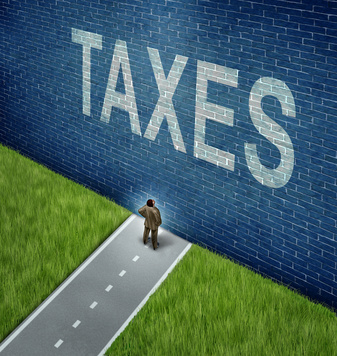You mean the tax liens won’t go away when I get a bankruptcy discharge?
The client was startled that the lien would live on beyond his bankruptcy.
So, if all my debt doesn’t go away, what do I get from the bankruptcy discharge? he asked.
I thought the tax debt went away when I filed.
It’s your personal liability that is wiped out when you get a bankruptcy discharge.
Liens live on.
What’s personal liability for debt
In a nut shell, personal liability is the right of your creditor to use the powers of the law to reach your wages and your assets to satisfy a debt.
When you get a bankruptcy discharge, that personal liability is erased. The discharged creditors can’t reach assets that you acquire after the bankruptcy.
So, get a bankruptcy discharge that wipes out older taxes and the IRS can’t garnish your future wages or levy your bank accounts. Further, the existing tax lien won’t attach to assets you acquire in the future.
Tax liens on current assets
But liens, which are rights that others have in your property, survive a Chapter 7 bankruptcy. Your property doesn’t necessarily get a discharge when you do.
Stripping tax liens in Chapter 13
By “property”, we mean personal property and real estate. A properly perfected tax lien attaches to all your personal property and to real estate in the county where it’s recorded.
The critical question is: what is that tax lien worth? Does it really attach to anything of value?
Or is it just a big number hanging out there, unrelated to the value of what you own?
Tax liens after bankruptcy
In my client’s case, the tax obligation bordered on a million dollars, nine years later. But the value of his assets was negligible. A discharge would eliminate his personal liability, leaving only the lien on the assets owned at the filing of the bankruptcy.
So, the million dollar tax lien attached to an older car, a few dollars in the bank, and the shares of a business that would be worthless if he were to leave the business.
What does that tax lien really mean to his post bankruptcy life? Not much.
The IRS does not want his old car or worthless stock. It certainly doesn’t care about his household goods or dirty socks. It would cost far more than these things are worth to conduct a tax sale.
He’s safe running the business and washing the socks, because the IRS won’t be there to take them.
Choices for dealing with tax liens post bankruptcy
What you do about the tax liens that live on after your bankruptcy depends on what they’ve attached to and what your financial life looks like, post bankruptcy.
The first thing to know is that tax liens, unlike diamonds, are not forever. The lien expires when the statute of limitations under non bankruptcy law runs on the tax year that triggered the lien.
The general statute of limitations on federal taxes is 10 years from the date the tax was assessed. Assessment usually occurs when you file the return and the return is processed by the IRS.
Thus, it’s the date the taxes were assessed, not the date the lien was recorded that is important.
Many people simply do nothing about tax liens that survive the bankruptcy. They rely on the passage of time and the relative low worth of the liened assets to keep them out of the IRS crosshairs until the lien dies of old age.
If getting the tax lien off the public record, or off of a property that has some value that the tax lien reaches, you can approach the IRS with an offer to pay something for the release of the lien.
Typically, if you get a release of the lien, it will be up to you to record it in the public record. The IRS will give you the document you need, but you have to actually record it.
So, while the tax lien may live on, it probably has little impact on your life after bankruptcy.
Or, you can file Chapter 13, where the liens are cut down to match the actual value to which they attach. The secured portion gets paid over the life of the Chapter 13, and the lien is voided at the end of the plan.
Chapter 13 as a tax tool
Image: © freshidea – Fotolia.com






